If you’ve been watching Baywatch (like I have) and are genuinely curious as to why surfers always seem to have beautiful, sun-kissed blonde hair – I’m here to help!
It’s a question that has been asked for years and there are some interesting theories out there!
Now, the main reason why surfers have blonde hair is that the sun bleaches hair. And the salty water from the sea/ocean also lightens hair. This combination can naturally bleach hair quite fast.
This is true – I’m not denying it.
However, there’s also this seriously freaky genetic mutation called the Melanesian Blonde Gene that can contribute to the prevalence of blonde hair among surfers in certain regions. It’s rare but it happens.
This mutation occurs in people who are usually geographically isolated. You can read the actual study on this here. I’ll talk about this more in the post.
The idea of blonde hair surfers has kinda become a cultural icon and if you watch enough TV as I do, you’ll know it’s pushed onto us in movies, TV shows, and advertisements.
When we see a surfer with golden locks blowing in the ocean breeze, we immediately feel a sense of awe.
So, in this post, I’m going to go into detail and talk more about why surfers actually have blonde hair.
Let’s get into it!
This post contains affiliate links, meaning I may make a commission at no extra cost to you if you decide to click on a link and purchase something. Click here to read the full disclaimer.
Okay, before I dive into the reasons, I’m just going to address the stereotype.
No. Not all surfers have blonde hair and not all blonde-haired people are surfers. However, a lot of surfers may likely have lighter hair.
Okie dokie, let’s begin!
1. Sun exposure lightens hair
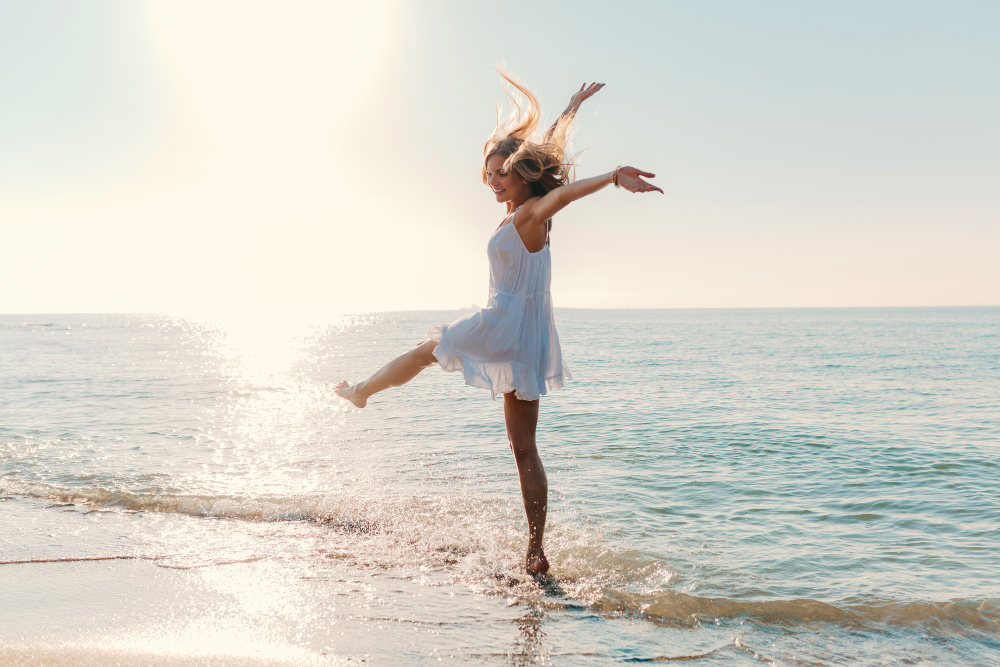
This happens whether or not you are a surfer.
If you spend a lot of time in the sun, your hair color lightens.
So, our hair and skin have a pigment that is responsible for our hair and skin color.
Our hair has something called Eumelanin or Pheomelanin. People with Eumelanin usually have brown or black hair and people with Pheomelanin usually have red or blonde hair.
Pheomelanin is responsible for lighter color hair. And it is definitely more sensitive to sunlight.
This is why people with natural red hair or blonde hair will go several shades lighter if they spend a lot of time in the sun.
It is called natural bleaching.
And yes, I even suggest this as a way to lighten hair color.
To get all sciency and technical – When you are surfing, you’re spending a lot of time in the sun, especially when you’re in the water.
So, your hair can become lighter due to a process called Photobleaching.
This occurs when the sun’s ultraviolet (UV) rays interact with the pigment molecules in your hair, causing them to break down and become less concentrated – resulting in hair becoming lighter in color.
And when you’re surfing, you’re spending a lot of time in direct sunlight so the reflection of the sun off the water can intensify the UV rays hitting your hair.
This combination of saltwater, wind, and sun can all work together to create the perfect condition for photobleaching to occur.
Now, the extent to which your hair will lighten depends on a few factors:
- Natural color of your hair (like I said earlier, red and blonde hair lighten quickly because Pheomelanin is more sensitive)
- How long you spend in the sun
- How often you surf
Darker hair will typically lighten less than lighter hair, and if you have black hair, it may even turn brown!
But for those who spend a lot of time in the water, surfing can lead to a gradual lightening of their hair over time.
Some surfers love this of course and even embrace this effect as a badge of honor – because it’s a sign that they’re truly dedicated to the sport.
2. Salt water can be very drying
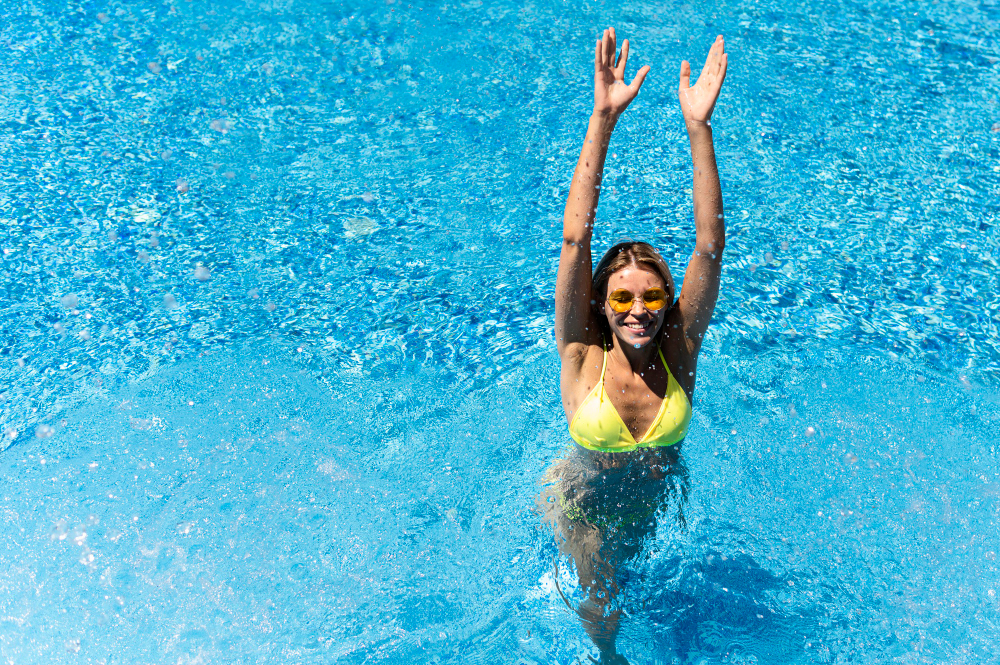
The ocean may contribute to hair damage and potential lightening.
For instance, salt water is very during to hair and can strip it of its natural oils, potentially causing damage and breakage.
Now, the saltwater does not directly turn hair blonde, it just weakens the hair a lot and makes it more vulnerable to UV ray damage.
This is why you’ll notice that your hair becomes very brittle and straw-like if you spend too much time in beach water.
As a curly girl, it’s even worse for me.
3. Beach culture and media representation
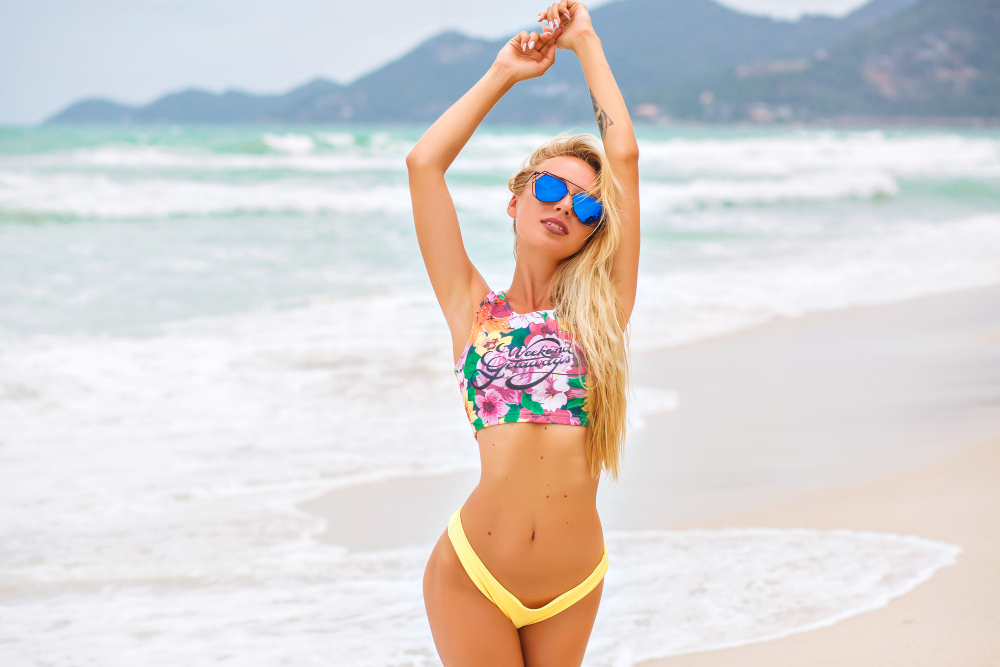
Surfing is often associated with a laid-back, beachy lifestyle that values natural beauty and simplicity.
I mean, any typically “hot” person on a beach on TV has blonde hair – this representation has become the norm.
Blonde hair is often seen as a symbol of this carefree, effortless vibe so it’s possible that surfers are more likely to embrace this look as part of their overall aesthetic.
So, yes – blonde hair, loose-fitting clothing, sandals or flip-flops, and accessories like sunglasses and hats all go with blonde hair.
And as a person who is nowhere close to the US, this is what I imagine all Americans on the beach look like.
Popular TV shows and movies often show surfers as attractive, athletic, and carefree sporting a beautiful tan with long blonde wavy hair.
Blonde hair is often seen as a classic, all-American look that fits into this stereotype.
This brings me to my next question.
Is ocean water healthy for hair?
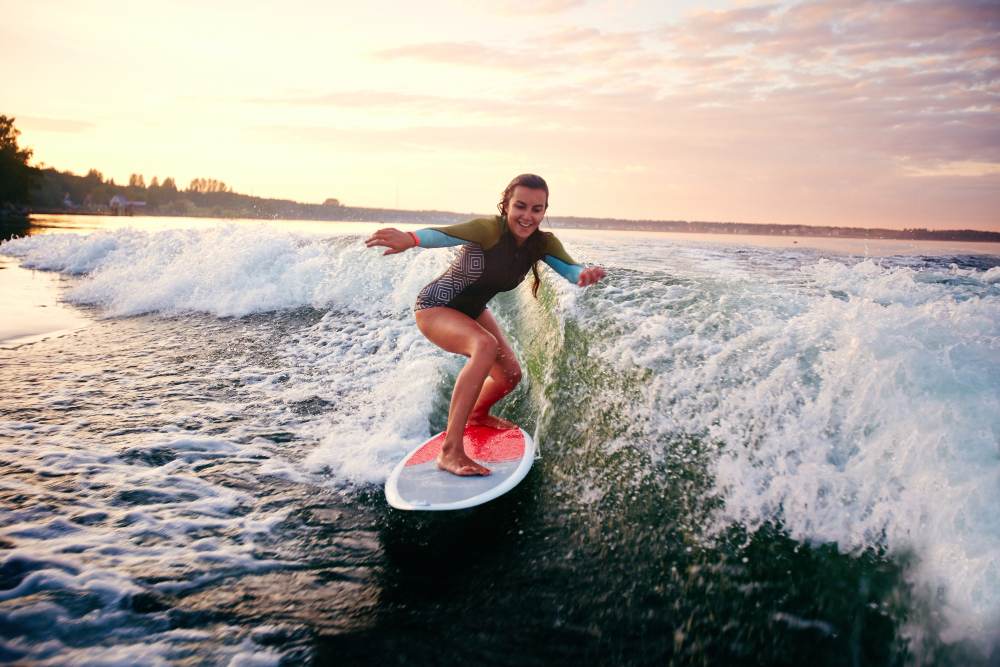
Yes and no.
It does have pros and cons.
For instance, some of the benefits are:
1. Salt water is a natural exfoliant
Saltwater can help exfoliate the scalp and remove dead skin cells and product buildup which can promote healthy hair growth.
2. Saltwater will give your hair volume
The salt in the ocean water can create volume in the hair, giving it a nice, thicker, fuller appearance. If you have waves, they may even become thicker if you spend some time in the water.
3. Saltwater gives hair more texture
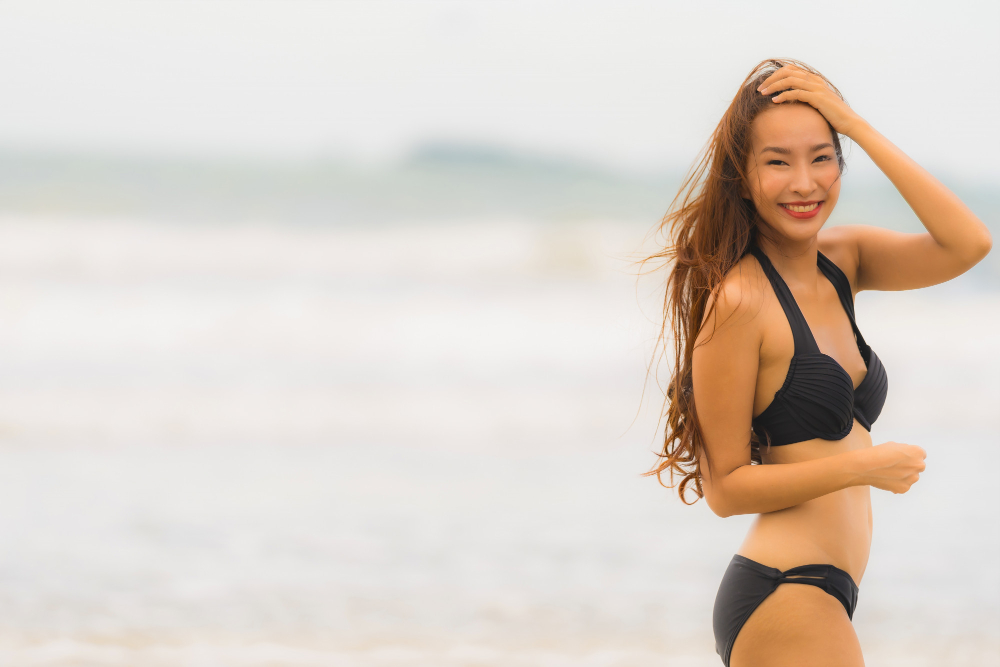
Ocean water gives hair that beachy texture, with loose waves and a tousled look that A LOT of people really love – this is why you’ll find so many mousses and hairspray with the word “beach” in it.
But salt water can also damage hair.
Let’s talk about the cons for a second.
1. Salt water is drying
Saltwater can be very drying to hair, especially if it is not rinsed out thoroughly. This can lead to breakage, split ends, and a generally unhealthy appearance in the long run.
2. Salt water damages hair
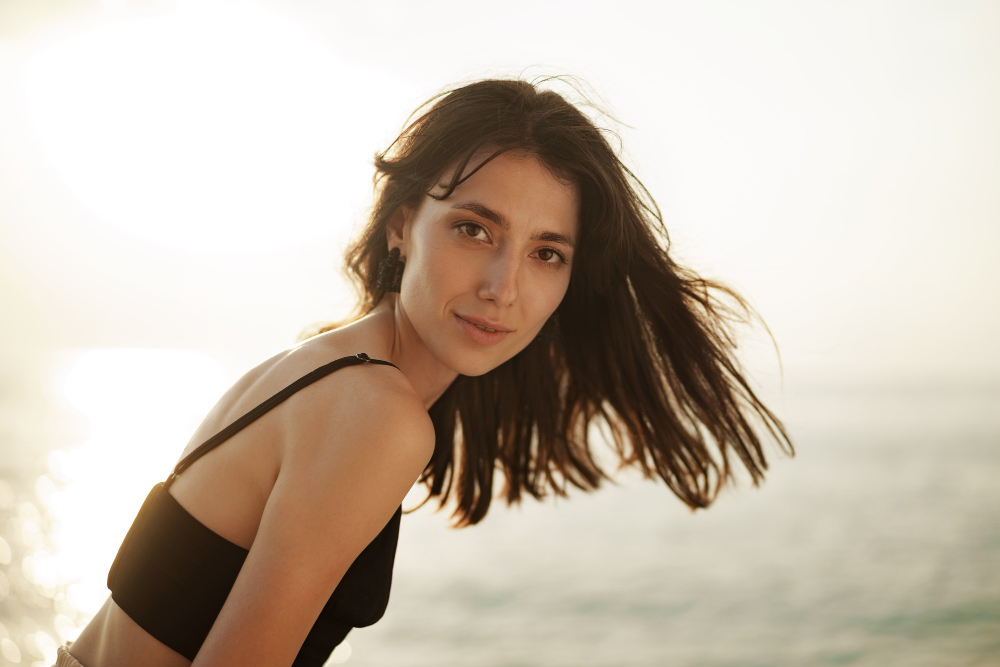
The salt in ocean water can be very abrasive to hair if it’s exposed to the sun or wind. Over time, this can damage and weaken the hair shaft
3. It causes a lot of tangles and knots
Saltwater can cause hair to tangle and become very knotted, which can become difficult to tangle and may result in breakage.
So, now you have a good idea of how damaging the sun and salt water can be.
This is why it’s very important to protect your hair.
Now, how can we do that? Here are some tips!
How to protect your hair at the beach?
Spending time at the beach can be insanely fun, but it’s so important to protect your hair and skin from the sun and saltwater.
This blog is only about hair, so I’m not going to cover skin.
Here are some tips to keep your hair super healthy and beautiful while you’re surfing or just visiting the beach.
1. Wear a hat
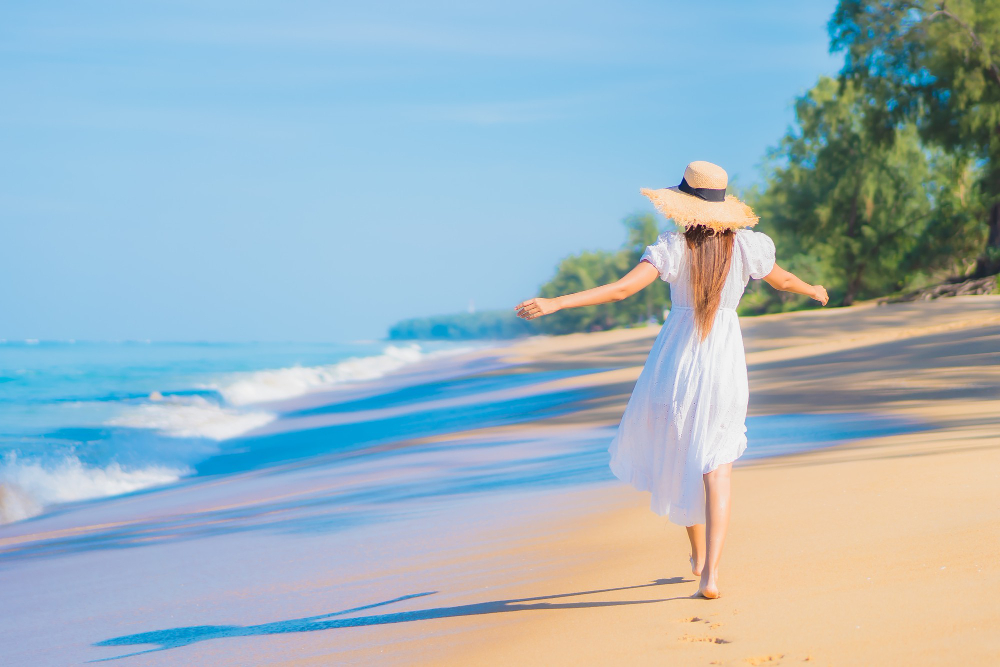
When you’re not surfing and just lying on the beach, please wear a hat.
Wearing a hat is a great way to protect your hair from the sun’s harmful UV rays. A wide-brimmed hat can also help you shield your face and neck from the sun.
2. Apply a leave-in conditioner
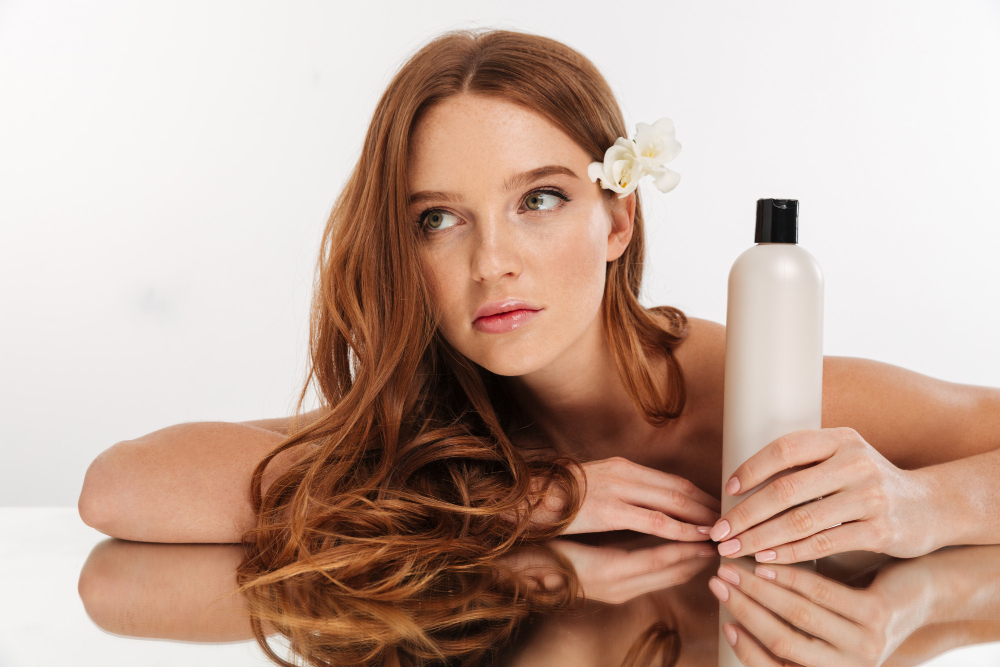
Applying a leave-in conditioner before heading to the beach is going to moisturize your hair and protect your hair strands.
When your hair is already wet with the product, it’s going to absorb much less salt water. So, you’re actually protecting your hair by using a leave-in conditioner.
Look for products that are specifically designed for use in the sun and some of these formulas often contain ingredients that protect hair from UV damage.
3. Rinse with fresh water
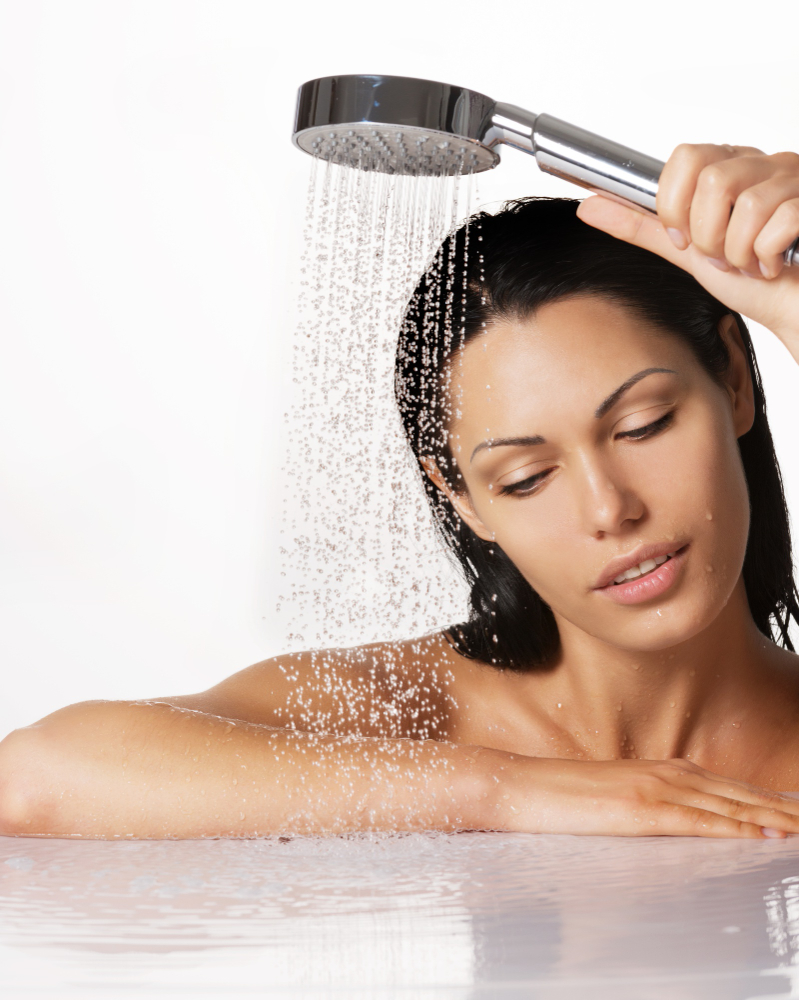
Now, while you’re in the salt water, there is not much you can do except maybe wear a swim cap that doesn’t allow water to get in.
I understand this is not comfortable.
So, if at all, you are leaving your hair free in salt water, that’s okay.
Just make sure you rinse off all the salt water after you get out. You have to rinse your hair thoroughly in fresh water to remove all the salt, sand, and impurities that have accumulated in your hair.
This is going to prevent drying and damage.
You can also run a conditioner through the strands to make sure you get rid of all the tangles and knots.
4. Use a protective spray
There are many protective sprays on the market (please buy on Amazon after reading the reviews) that are designed to help shield hair from the damaging effects of the sun and saltwater.
Look for a hair protective spray that contains UV filters and other nourishing ingredients and be sure to apply it regularly throughout the day.
I like to use reminders on my phone and reapply the spray and sunscreen every 2-3 hours. So, when it beeps, I know I have to reapply my hair spray and sunscreen.
5. Avoid excessive styling
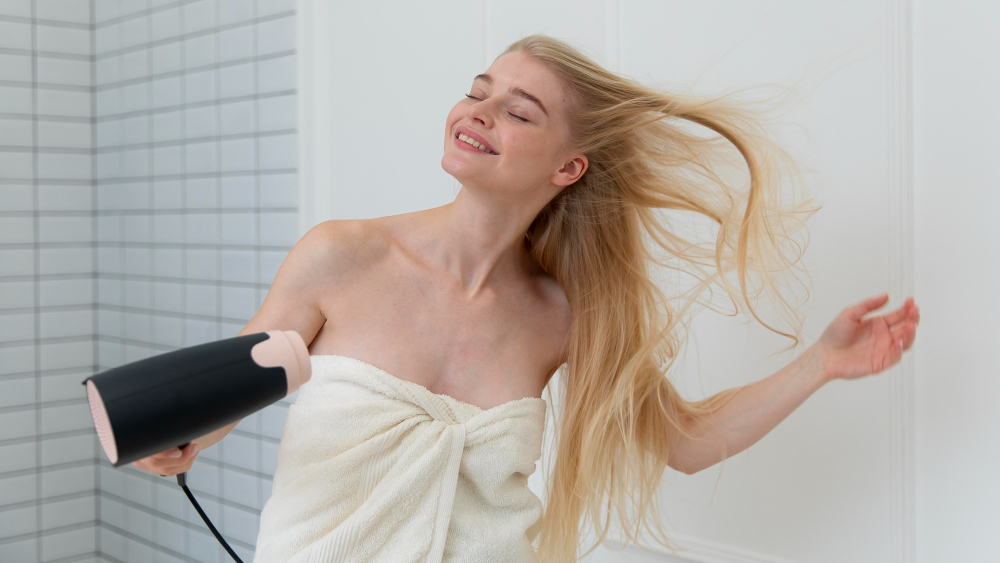
If you know that you are going to be spending a lot of time at the beach, avoid heat styling.
Heat styling is very damaging to hair especially when your hair is already weakened by exposure to the sun and salt.
So, please avoid using hot tools like hair dryers and straighteners while you are at the beach and opt for natural styles like braids or loose waves instead.
I also recommend not bleaching your hair or coloring it because this too can damage your hair.
By following these types, you can help keep your hair healthy and beautiful even while spending lots of time at the beach.
Please remember to prioritize your protection and nourishment, your hair will thank you!
Here are more posts you’ll find useful:
- 12 Surprising Benefits of Rose Water for Hair + How to Use It
- 11 Genuine Reasons Why Your Hair is Sticky after Washing
- 9 Reasons Why One Side of Your Hair Grows Faster
- Should I Wet My Hair Before Cutting? All You Need to Know
- Thin Hair After Hair Extensions? How to Recover and Grow It Back
- 7 Real Reasons Why Your Hair is Getting Shorter Without Cutting It
- 7 Easy Ways to Make Hair Smell Good Without Dry Shampoo
- Why Your Hair is Stiff After Flat Ironing – 9 Mistakes to Avoid

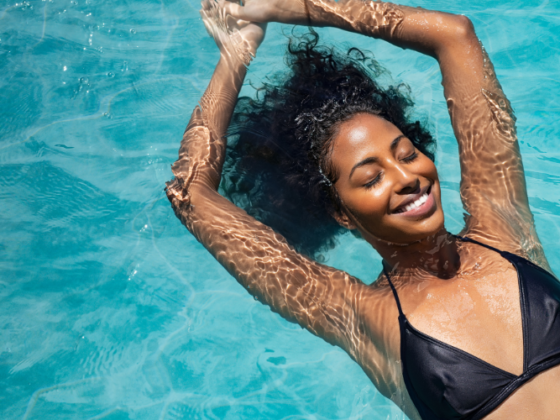
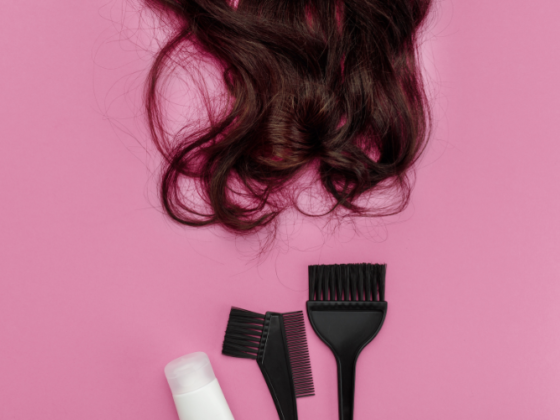
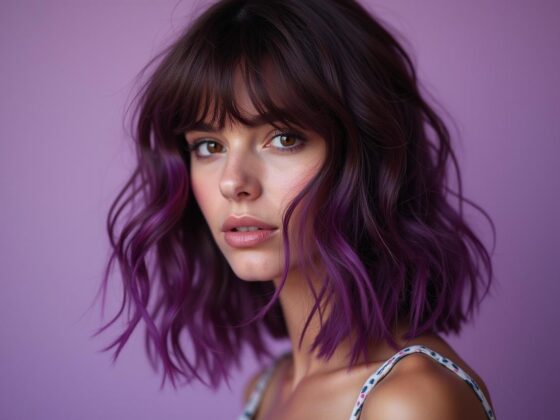

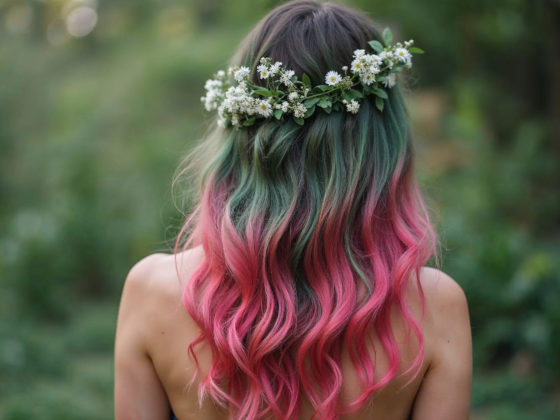

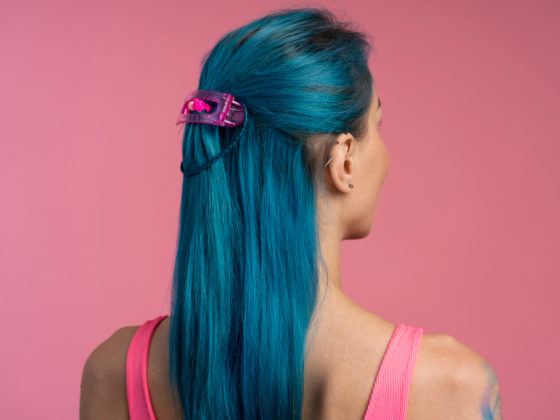
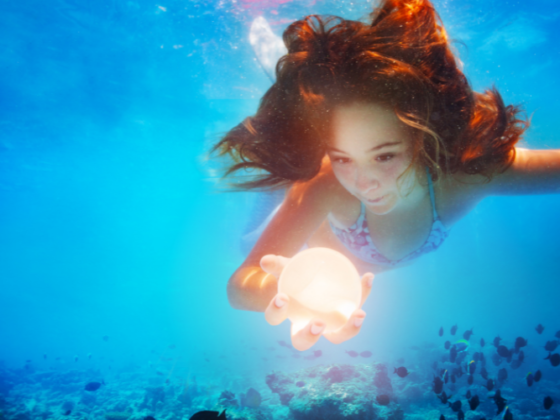

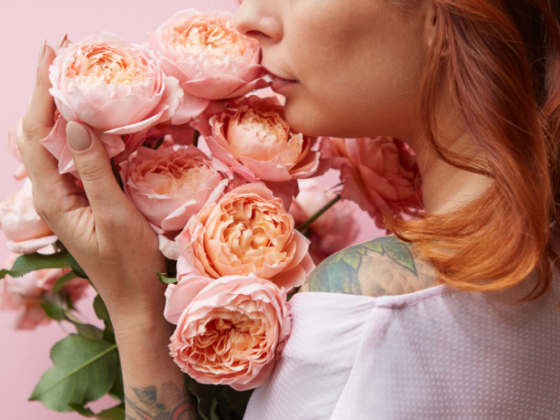
2 comments
Very informative and well written, I love your posts, Angela!
Thank you Maria!